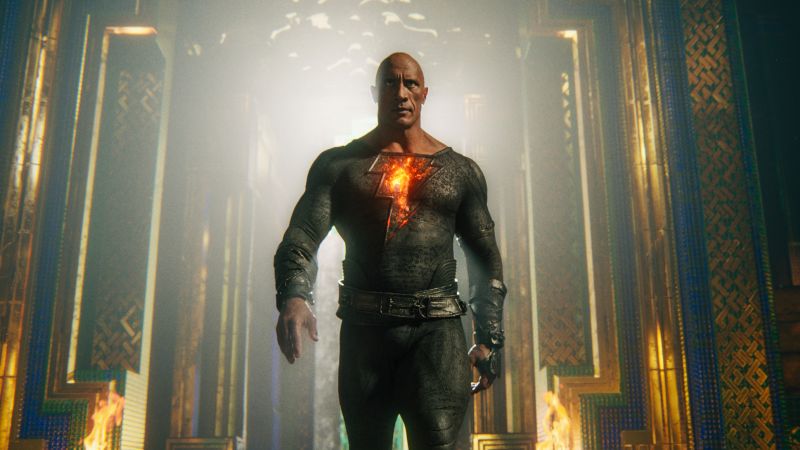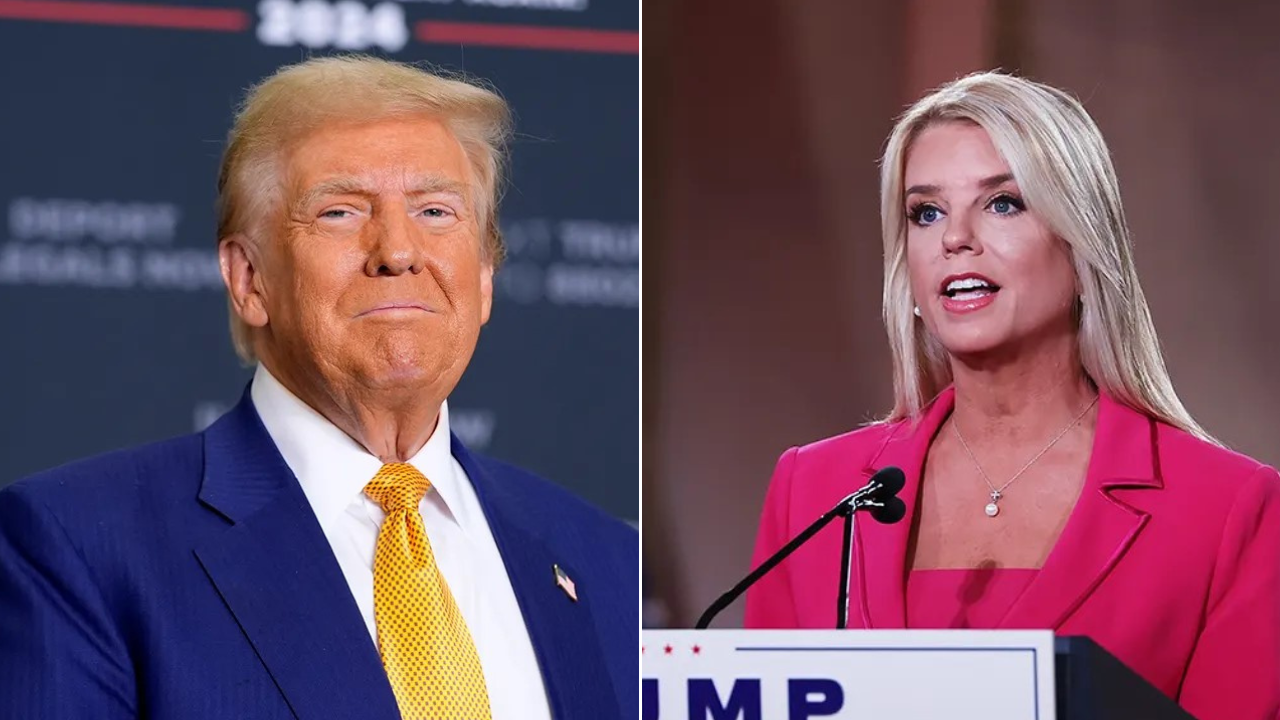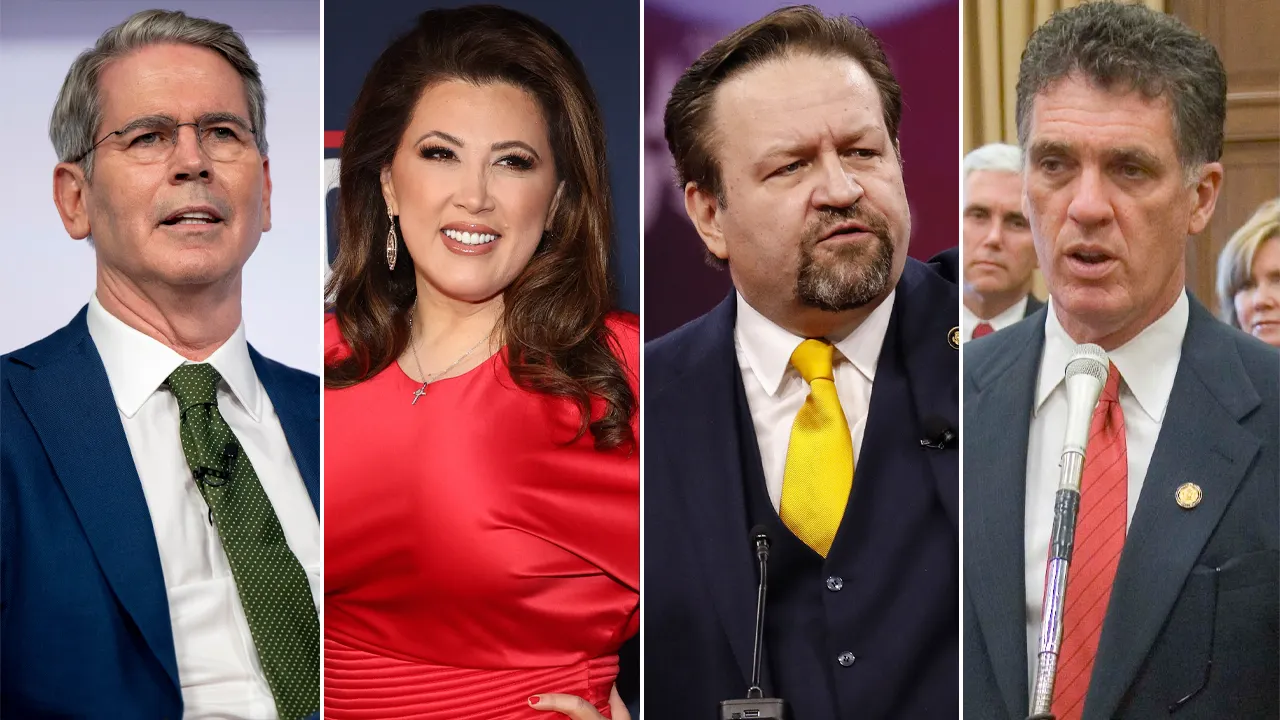Movie Reviews
‘Fast Charlie’ Review: Pierce Brosnan Works His Suave Magic in Phillip Noyce’s Darkly Comic Hit Man Thriller

It becomes apparent early on that Fast Charlie is not going to be your typical crime drama. Featuring not one but two brutal deaths in its opening minutes that are as hilarious as they are graphically gory, Phillip Noyce’s thriller starring Pierce Brosnan in the title role has the irreverence of an Elmore Leonard tale, leavened with generous doses of sentiment. We’ve seen plenty of cinematic aging hitmen looking to retire to a more peaceful life before, but thanks to Brosnan’s ageless charm and a subtly rendered love story underpinning the proceedings, we’ve never rooted for one quite as much.
Based on Victor Gischler’s more crudely titled novel Gun Monkeys, the mostly Mississippi-set film revolves around Charlie, who likes to think of himself less as a killer for hire than a “concierge” — a “problem solver,” if you will. And as this story unfolds, Charlie’s got a lot of problems to solve. First, he botches the killing of a target thanks to his clueless new partner, who uses too much explosive and renders the body unidentifiable. That one is solved easily enough when the hapless accomplice accidentally shoots himself dead and serves as a substitute corpse.
Fast Charlie
The Bottom Line A B-movie with heart.
Release date: Friday, Dec. 8
Cast: Pierce Brosnan, Morena Baccarin, James Caan, Gbenga Akinnagbe, Christopher Matthew Cook, David Chattam, Toby Huss
Director: Philip Noyce
Screenwriter: Richard Wenk
90 minutes
A bigger problem emerges in the form of rival gangster Beggar (Gbenga Akinnagbe), who kills Charlie’s elderly, dementia-addled boss Stan (the late James Caan, affecting in his final screen appearance) and most of Stan’s gang. The remaining target is Charlie, who teams with his latest victim’s embittered ex-wife Marcie (Morena Baccarin, Deadpool) to try and stay alive, with her skills as a professional taxidermist coming in unexpectedly handy.
The fairly conventional storyline is enlivened by the many doses of wry humor peppered throughout the tight script (Fast Charlie comes in at 90 minutes, a welcome exception to the bloated running times of so many actioners these days) by Richard Wenk (the Equalizer films, The Magnificent Seven). When Charlie shows up at Marcie’s door only to discover the dead bodies of two would-be assassins she’s managed to dispatch on her own, he sardonically inquires, “This a bad time?”
Which is not to say the film is without thrills. Those include a tense sequence in which Charlie hides from an assassin in a hotel laundry chute, only barely managing to prevent himself from falling and finding the task considerably more difficult after the killer shoots his gun randomly up the chute and hits him in the leg; and a final stand-off in which Charlie seems destined to become Beggar’s latest victim until, of course, he’s not.
Employing a spotty Southern drawl that never proves remotely convincing in a way that somehow doesn’t matter, the still fit 70-year-old Brosnan delivers the kind of assured, low-key commanding performance befitting a former James Bond. His Charlie is the sort of ruthlessly skilled operative who easily gets the goods on a pair of would-be killers thanks to a Ring Doorbell but also treats his longtime boss Stan’s increasing memory loss with gentle care, including thoughtfully labeling the Italian dishes he’s cooked for him and left in his refrigerator. His dream for retirement is living in one of those run-down homes in Italy that you can buy for a dollar if you renovate it. The main reason he hasn’t gone yet is the lack of a partner. It’s a situation that may be remedied thanks to his growing rapport with the significantly younger Marcie (Brosnan and Baccarin play the subtle flirtations perfectly).
Veteran director Noyce, here working on a fairly modest scale, orchestrates the proceedings with his typical skill, capitalizing on the smarter-than-usual script and his star’s effortless charisma. He also provides a welcome opportunity for Sharon Gless to pull out all the stops in an uproarious cameo as the sort of profane, white-trash Southerner whose idea of an insult is to call someone a “testicle sucker.”
Full credits
Production: Boomtown Media Partners, Foresight Unlimited, Golden Liberty Films,
Distributor: Vertical Entertainment
Cast: Pierce Brosnan, Morena Baccarin, James Caan, Gbenga Akinnagbe, Christopher Matthew Cook, David Chattam, Toby Huss
Director: Philip Noyce
Screenwriter: Richard Wenk
Producers: Daniel Grodnik, Mitchell Welch, Jeff Holland, Brent C. Johnson, Ryan Donnell Smith
Executive producers: Joshua Harris, Greg Friedman, Jatin Desai, Emily Hunter Salveson, David Fannon, Seth Needle, Victor Gischler, Ford Corbett, Walter Josten, Patrick Josten, Matthew E. Chausse, Simon Williams, Joe Simpson, Jonathan Bross, Curt Henderson, Kim Henderson, Kerim Antoine Kfuri, Kent Adams, Carrie Adams, Miles Boldrick, Mark Damon, Tamara Birkemoe
Director of photography: Warwick Thornton
Production designer: Frank J. Zito III
Editors: Lee Gaugen, Jered Zalman
Costume designer: Nancy Collini
Composer: Fil Eisler
Casting: Jeff Gerrard DeGeralamo, Robin Lippon
90 minutes

Movie Reviews
Superb reviews and a good opening for Nazriya’s Malayalam comeback film | Latest Telugu cinema news | Movie reviews | OTT Updates, OTT

Suspense thriller Sookshmadarshini marks Nazriya’s return to Mollywood after a hiatus of four long years. Directed by MC Jithin and starring Basil Joseph as the male protagonist, the movie hit the big screens yesterday. Sookshmadarshini received glorious reviews from critics and is off to a good start at the box office.
In Kerala this Nazriya Nazim starrer collected in the vicinity of Rs. 1.6 crores gross, which can be termed as a promising start. The occupancies picked up in the evening and night shows once the reports started coming in. Even though the film had a limited release in the USA, it raked in over $30K on the opening day. The showcasing is expected to increase in this territory from today. Globally, the movie earned approximately Rs. 4 crores gross.
Riding on the terrific word of mouth, Sookshmardarshini commenced its day two with a bang. The movie is now selling around 7K tickets per hour on the BMS portal. Said to be made on a shoestring budget, the film has a high chance of emerging as a blockbuster. Sooskhmadarshini will have a solid weekend, but its performance on the first Monday will give us an idea about the final numbers.
Sookshmadarshini is bankrolled by cinematographers Shyju Khalid and Sameer Tahir, along with AV Anoop. The movie also stars Deepak Parambol, Sidharth Bharathan, Merin Philip, Akhila Bhargavan, Pooja Mohanraj, and others in pivotal roles. Christo Xavier composed the tunes.
Movie Reviews
‘Flow’ Review: Dogs and Cats … Swimming Together … Moist Hysteria!

There comes a moment in every animal lover’s life where we’re watching a movie with a cat in it, or a dog, or an [insert animal here], and we’re overwhelmed by one singular thought: “I swear to god, if anything happens to this creature, I will never watch a movie again.”
It’s an empty threat — probably — but in the moment nothing could be more sincere. Animals have a way of cutting through our emotional defenses. They can be jerks (my cats are literally punching each other right now) but they don’t screw each other over for money. They don’t pass legislation to deny people access to public bathrooms. In the movies, a human being is able to lose our sympathy completely, to the point that something bad happening to them feels like karmic justice. But a cat doesn’t deserve any of that crap. Ever. Ever.
So a film like “Flow” is about as harrowing as filmmaking gets, especially if you like cats. Or dogs. Or secretarybirds. Or lemurs. Or capybaras. The movie puts all these little guys in peril very quickly and never lets up. Even the quietest moments of “Flow” are tainted by existential threat. It’s suspenseful and pensive and painful in a way few films strive for, and fewer still achieve.
“Flow,” directed by Gints Zilbalodis (“Away”), tells the story of a cat who lives in the woods in a long-abandoned house. A pack of dogs, all domesticated breeds, roams these woods as well, chasing our little guy down because — well, they’re dogs. One day, all of a sudden, with almost no warning, a tidal wave crashes through the trees, and the danger won’t stop there. The water level is slowly rising, every second, until all the land starts to disappear under the rippling surface.
The only salvation is a small wooden sailboat. The cat leaps into it along with a lemur and a capybara, and they float aimlessly, foodlessly, atop the trees, over mountains, through the last sky-scraping vestiges of human civilization. The dogs come back, and the golden retriever — being a golden retriever — makes friends with everybody. A secretarybird takes pity on them and brings fish, and may even be able to protect them from other airborne predators. Whatever these animals’ differences may have been, even though they’re naturally predators and prey, even they can recognize that in the face of climate change the only way to survive is by working together. Humanity, much to our ongoing shame, would apparently never.
It’s not a subtle message, and any movie that relies entirely on placing animals in peril isn’t subtle either. Gints Zilbalodis doesn’t merely earn our sympathy with these creatures, he practically takes it from us at gunpoint. To be perfectly frank, “Flow” is in many ways a cinematic cheap shot. Sure, it’ll knock the wind out of you, but it’s not like we had any choice. Animals are cute. Animals in danger are an emotional nuclear strike.
Of course, nobody ever said movies have to be subtle. At least, nobody credible. But “Flow” does find subtlety in its little moments, as opposed to its big messages. The major plot points — daring rescues, unexpected alliances, spiritual moments that defy any literal interpretation — are heavy-handed, yet effective. The scenes of a cat, despite its harrowing circumstances, reduced to kittenhood by the allure of bopping a lemur’s swishing tail? Now that’s relatable. That’s life going on, whether we realize it or not.
So where are the humans in “Flow?” Long gone by the time the movie begins, apparently. “Flow” floats through the remains of our society, empty towers to infinity, monuments reduced to aquatic tombs. Our conspicuous absence is depressing, but then again, if it weren’t for us, or at least whoever built the boat these animals are clinging to, there would be no hope for any animal’s salvation. Except of course for the fish. They seem to be having a field day. If they could speak you’d probably hear one of them yell “I’m king of the world!’ before getting munched on by, apparently, the world’s very last cat.
“Flow” is animated in a style that suggests that Gints Zilbalodis plays, and loves, a lot of video games. The simplistic character designs, the bright lighting, the environments filled with tall structures in the distance to keep us oriented. The nature of the world is revealed in action and detail. Its immensity is contrasted with the smallness of the characters, highlighting a breathtaking sense of scale.
“Flow” uses platforming and puzzle-solving elements to push its story forward, and before long you might get a little impatient and wonder when we’re finally going to be allowed to play. We can’t, of course, because in this story humanity is dead. The story is in so many ways about persevering in the face of overwhelming helplessness. We may never get that “Shadow of the Colossus” movie Hollywood kept threatening to make for so long, but “Flow” understood many of the storytelling lessons that particular classic had to teach us.
Zilbalodis’s film makes a powerful double feature with this year’s “The Wild Robot,” which also tells a tale of a harrowing future in which animals have to set aside their instincts and band together to survive. Both films evoke religious imagery, although “The Wild Robot” is very much The New Testament and “Flow” is basically “Noah’s Skiff.” On the surface it may be tempting to suggest that “The Wild Robot,” being the Hollywood studio version, is the less subtle of the two, but that film has complex philosophical conversations that “Flow” can only hint at, and the commitment “Flow” has to imperiling small animals amidst a climate change allegory is anything but understated. The two films make similar points in incredibly different ways; both do a beautiful job of it.
Getting back to my earlier threat that if anything happens to the cat I’ll never watch a movie again — I can’t say everything turns out OK. Because it kind of can’t, and that’s the point. The animals in “Flow” aren’t in control of their circumstances, and it’ll be a miracle if anything — except of course for (most of) the fish — survives this aquatic apocalypse. And if they do, who knows for how long? Then again “Flow” is itself a bit of a miracle, so maybe there’s hope. If not for us, then at least for the innocent creatures who have to live in the crappy world we’ve made for them.
So if anything does happen to this cat, or this dog, or this secretarybird, or this lemur, or this capybara … we have only ourselves to blame.

Movie Reviews
The Last Republican movie review (2024) | Roger Ebert

The documentary “The Last Republican” follows the final months in office of Congressman Adam Kinzinger, who represented two districts in Illinois over the span of 12 years. Kinzinger was one of a handful of Republicans who stood against President Donald Trump, refusing to support him in 2016, then going after him more straightforwardly after Trump lost the election of 2020 and tried to overturn the results by inciting a mob that stormed the Capitol on January 6, 2021, causing multiple deaths. Unlike other Republicans, including then-Senate minority leader Mitch McConnell and then-Speaker of the House of Representatives Kevin McCarthy, Kinzinger never walked back or even softened his position on Trump’s role in Jan. 6 in order to help position Trump for re-election and stay close to the party’s power center. Kinzinger instead made his opposition to Trump the defining part of his identity.
He started a podcast titled “Country First Conversations”” and a political action committee to fund anti-Trump candidates and later supported President Joe Biden and then Vice President Kamala Harris for president and spoke at the Democratic convention. After voting against Trump’s first impeachment, Kinzinger voted for his second impeachment and later said he regretted not voting for the first one.
He also became one of 35 Republicans to support the formation of a committee to investigate the attacks on the Capitol and served on the committee himself. There’s grimly funny segment showing House speaker Nancy Pelosi, a Democrat, announcing that Kinzinger was going to serve on the Jan. 6 committee before actually asking him, and a snippet of McCarthy casually referring to Kinzinger and another Trump critic, Wyoming Republican senator Liz Cheney, as “Pelosi Republicans.” When Cheney lost her primary in Wyoming to her former advisor Harriet Hageman—who briefly opposed Trump, then supported him again—Kinzinger accused conservative pastors of “failing their congregations” by encouraging support for Trump. He is now a CNN commentator.
The title telegraphs the point-of-view of the movie’s director, Steve Pink (“Gross Pointe Blank”). Pink is progressive who disagrees with most of what Kinzinger stands for politically (the movie opens with Kinzinger baiting Pink by calling him a “communist”). Pink positions Kinzinger as one of the last true or real Republicans, primarily because Kinzinger consistently advocated for the rule of law where Trump was concerned and, in Kinzinger’s words, put “country over party.”
This is, of course, a questionable framing, good for branding and sparking arguments on podcasts but not much else. There are plenty other examples of Republicans positioning themselves above the law at various points in the last 50 years, and it’s not as if Democrats have a spotless record in that regard either. In any given era of American history, the “true” Republicans are whichever ones define the identity of the party, and at this particular juncture, it’s not people like Kinzinger.
“The Last Republican” also mostly elides Kinzinger’s positions on various issues, seemingly to make him more palatable here as a Capra-esque hero who is exclusively defined by standing up to corruption, and against a politician that the filmmaker also opposes. (Kinzinger had a much more progressive record on anti-discrimination legislation than most Republicans, but still voted with Trump 90% of the time, blamed China for spreading COVID, and voted in 2017 to repeal parts of the Affordable Care Act.)
This is not to say that Kinzinger’s opposition to Trump isn’t evidence of integrity and a willingness to sacrifice power for principle. That’s plainly the case, and it’s driven home in a scene where Kinzinger and his wife Sofia Boza-Holman sit on a couch in their house cradling their newborn son while watching the House vote to censure Kinzinger and Cheney for serving on the Jan. 6 committee. But there’s a more nuanced movie that could’ve been made covering the same period in Kinzinger’s life, one that took fuller measure of the ancient proverb “the enemy of my enemy is my friend”—though, to be fair, the very end of the movie humorously acknowledges what strange allies Pink and Kinzinger are, at least as far as this project is concerned.
The movie also gives a strong sense of Kinzinger as a person walking against the winds of change and dealing with tendencies in the American character that elude party definitions. “Everybody’s self-centered,” he tells Pink. “That’s the fight now of my next part of life, fighting against that cynicism.”
-
Business1 week ago
Column: OpenAI just scored a huge victory in a copyright case … or did it?
-

 Health1 week ago
Health1 week agoBird flu leaves teen in critical condition after country's first reported case
-

 Business6 days ago
Business6 days agoColumn: Molly White's message for journalists going freelance — be ready for the pitfalls
-

 Science3 days ago
Science3 days agoTrump nominates Dr. Oz to head Medicare and Medicaid and help take on 'illness industrial complex'
-

 Politics5 days ago
Politics5 days agoTrump taps FCC member Brendan Carr to lead agency: 'Warrior for Free Speech'
-
/cdn.vox-cdn.com/uploads/chorus_asset/file/25739950/247386_Elon_Musk_Open_AI_CVirginia.jpg)
/cdn.vox-cdn.com/uploads/chorus_asset/file/25739950/247386_Elon_Musk_Open_AI_CVirginia.jpg) Technology5 days ago
Technology5 days agoInside Elon Musk’s messy breakup with OpenAI
-

 Lifestyle6 days ago
Lifestyle6 days agoSome in the U.S. farm industry are alarmed by Trump's embrace of RFK Jr. and tariffs
-

 World5 days ago
World5 days agoProtesters in Slovakia rally against Robert Fico’s populist government




















